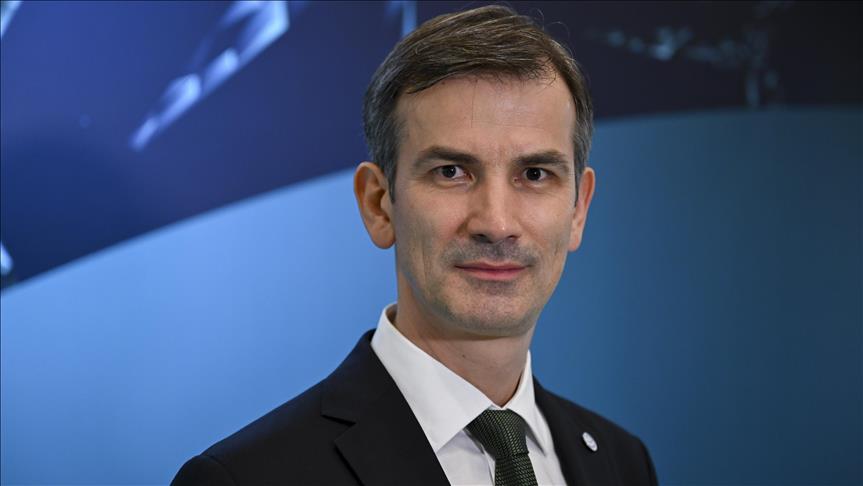Türkiye, with its large renewable energy potential, aims to boost its wind energy installed capacity by 50% with $5 billion in investments over the next five years, Turkish Wind Energy Association (TUREB) President Ibrahim Erden told Anadolu.
In the country’s latest five-year development plan, the country’s aim was to increase the installed capacity from the current 12,000 megawatts to 18,000 megawatts.
Speaking on the sidelines of the 12th Turkish Wind Energy Congress in Istanbul, Erden said that the country can achieve this target by investing $1 billion each year until 2028.
Although the country plans to reach 18,000 megawatts over five years, Erden argued that its wind energy potential is much greater, as the country has only reached about 10% of its total potential so far.
‘Estimated installed power potential is between 120,000 megawatts and 150,000 megawatts on land wind projects,’ he said.
Currently ranking as the fifth largest wind sector in Europe, Erden said that Türkiye could become an even bigger player in the European market.
He called on the public and private sectors to ensure the permit process runs efficiently by making sure that investors finish the permission procedure on time and that the public sector moves quickly to expedite this process.
Erden shared that the country also aims to have 5 gigawatts of offshore wind capacity by 2035.
Offshore wind projects, however, are more expensive than onshore ones since, according to Erden, turbine investments account for just 35–40% of the total project financing, whereas they account for 70–75% of land-based projects.
The majority of the investment budget, he continued, is allocated to more complex infrastructure, which includes the expenditures of building, installing cables, and logistics.
Holding offshore wind tenders is the next logial step, according to Erden. This procedure needs in-depth studies in consideration of locations where maximum wind power is possible as well as the optimum position for connections to land.
‘Initially, we foresee investments in offshore projects from the Gulf,’ he said.

